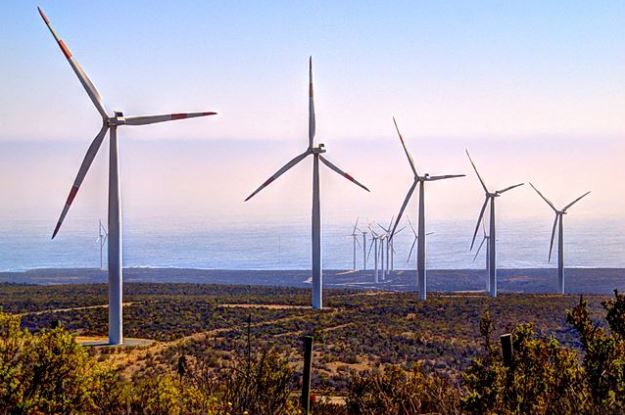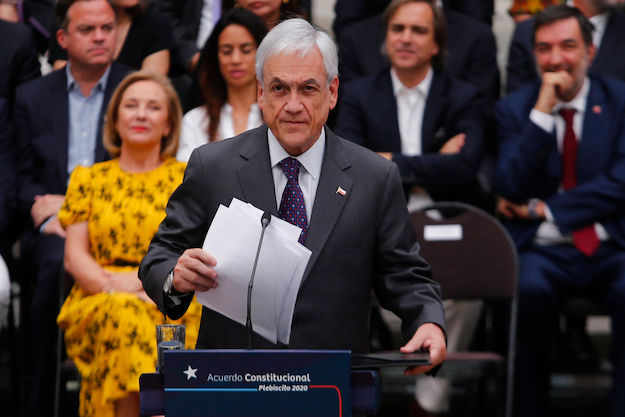Just five years ago, Chile was in the midst of an energy crisis. Argentina had stopped sending natural gas across the Andes, and the threat of blackouts and energy rationing was real. Energy prices were among the highest in the region, the sector was dominated by a handful of monopolistic utility companies, and the private sector’s plan to solve the deficit was to develop huge coal-burning power plants and build hydroelectric dams that would have flooded pristine Patagonia.
Chileans were fed up and took to the streets in protest. It is easy to forget, but in 2010 and 2011 when the student movement in Chile reached its peak, mass protests against the country’s energy system were just as vociferous. The voice of protest grew so strong against one coal project, Barrancones, that then-President Sebastián Piñera asked its developer, GDF Suez, to halt work even though the company had followed the letter of the law – a victory for the environment but highly damaging to Chile’s business reputation.
Today, students still march the streets demanding education reform; but few are complaining about energy. Indeed, if there is a bright spot in the otherwise dismal approval of the current government of Michelle Bachelet, it is the performance of the energy sector. Energy costs are down, renewable power is booming and energy investment is flooding the country. Last year, energy investment was greater than mining investment – this in the country that is the largest producer of copper on earth. In an unlikely twist to the opening tale, Chile began exporting electricity and natural gas to Argentina earlier this year.
“One word explains the immense change in Chile’s energy sector,” says Carlos Finat, the head of Chile’s renewable energy association ACERA, “and that’s competition.”
Competition is indeed fierce. There were 84 bids in Chile’s latest power auction, whose winners were awarded 20-year power purchase agreements this week. It’s a marked change from 2013, when four tenders had to be scrapped because there were no eligible participants. Prices, driven down by the flurry of participants, averaged $47.6/MWh for winning bidders, compared to an average of about $130/MWh in 2013. Three of Chile’s four largest generators – Colbún, Aes Gener and Engie – failed to win a supply contract, while wind power projects from relatively small firms won the majority of contracts. A solar project called Granja Solar secured the lowest price of any solar contract in the world, where only a few years ago it was unthinkable that solar could even compete without subsidies.
So why the fierce competition? Mainly, it has to do with deft, long-term energy planning. Chile realized it had a grave problem that could undermine not only energy but the health of its entire nation. The energy ministry, only created in 2010, became increasingly active in a sector that was previously dictated by the whims of the market. So far under the two-and-a-half-year leadership of Energy Minister Máximo Pacheco, seven new energy bills have become law. They tackle everything from overhauling the transmission grid to revamping the auction system so that it favors the country’s indigenous power sources – solar radiation in the Atacama desert, excellent wind conditions, rushing rivers and 4,000km of coastline.
Timing has also helped. The price of renewable technologies has fallen drastically in the last five years, and can now often compete on an even playing field with traditional technologies.
Daniel Yergin, prize-winning author of “The Quest,” often says that the world is best understood when viewed through the prism of energy. It is impossible to understand Venezuela’s collapse without also understanding its oil sector; Lava Jato in Brazil starts and ends with its state oil company, Petrobras. It’s also no surprise that one of the first issues the new president in Argentina, Mauricio Macri, has addressed is energy. The Chile energy story – still in its early stage and not without its difficulties – is one of careful, long-term planning, and the dynamism possible when both the public and private sector work towards the same goal and with the moral that it’s never too late to script a turnaround.
—
Lenton heads energy coverage at BNamericas in Santiago, Chile, where he also writes a regular column and edits the Intelligence Series, a monthly publication of six industry reports on Latin America.









